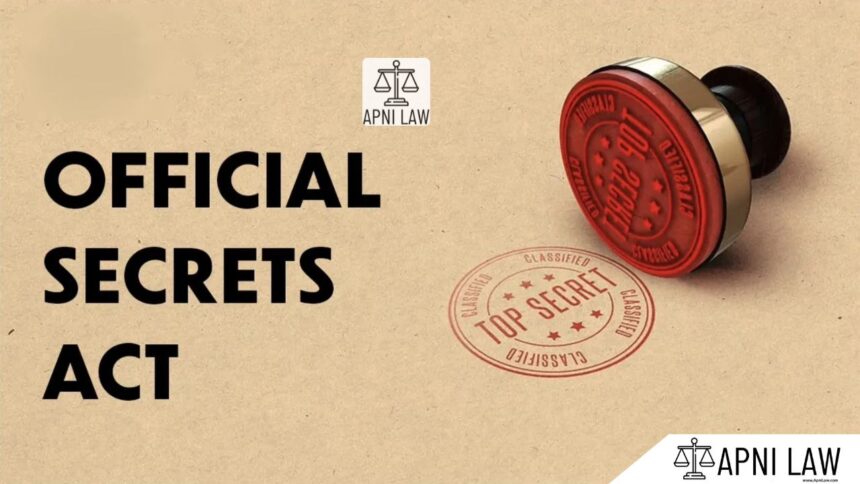India’s democracy thrives on transparency, but what happens when colonial-era secrecy laws still exist? The clash between the Right to Information Act, 2005 (RTI) and the Official Secrets Act, 1923 (OSA) highlights this very tension.
Recent legal action against The Hindu and news agency ANI for publishing documents related to India’s Rafale jet deal has reignited public debate. Here’s what you need to know about how RTI overpowers OSA, and what it means for you.
Can the Official Secrets Act Override the RTI Act in India?
No, the Official Secrets Act (OSA) cannot override the Right to Information (RTI) Act. The RTI Act clearly takes precedence over the OSA. If both laws conflict, the RTI Act applies. Section 22 of the RTI Act gives it overriding power over any inconsistent law, including the OSA.
RTI Overrides OSA
Section 22 of the RTI Act provides it’s significance over the OSA. It contains a non-obstante clause, which means that RTI provisions override any conflicting laws, including the OSA.
In simple terms, when there’s a conflict between transparency and secrecy, RTI wins.
Section 8(2) of the RTI Act adds more strength. It allows the disclosure of classified information if public interest outweighs the harm of revealing it. This ensures secrecy doesn’t become an excuse to block accountability.
Why the Official Secrets Act Is Criticised?
The OSA was passed in 1923, by the British. Its purpose was to protect state secrets related to espionage, diplomacy, and national security. But it was built for a colonial system, not a democratic republic.
One major issue with the OSA is its vague language. Under Section 2(8)(d), the government can declare any road, railway, or waterway as a “prohibited place.” Section 3 allows punishment for simply being near these places, even without intent to harm.
It also criminalizes the sharing of information that could harm India’s relations or security. This discourages journalism and whistleblowing, even when the information serves the public interest.
An example is the case of former Army Chief V.K. Singh, who was charged under OSA for writing about corruption in his book.
Is the OSA Against Democratic Values?
In a democracy, the government should stay accountable to the people. But OSA promotes secrecy as the default.
The Second Administrative Reforms Commission recognized this and recommended repealing the OSA in its report, “Right to Information: Master Key to Good Governance.”
The government, however, rejected the idea. Officials argued that the OSA is still needed to deal with espionage and national threats. In 2006, the Home Ministry suggested updating the law to align with RTI and privacy protections, but nothing changed.
How Courts Have Strengthened RTI’s Power
The Supreme Court has consistently favored transparency. In CBSE v. Aditya Bandopadhyay (2011), it ruled that citizens have the right to access information previously controlled by public authorities.
In RBI v. Jayantilal Mistry (2015), the Court dismissed RBI’s claims of banking secrecy and emphasized that Section 22 of the RTI Act prevails over any secrecy provisions.
These judgments reinforce that RTI is the rule, secrecy is the exception.
What About Exceptions in RTI?
The RTI Act isn’t absolute. Sections 8 and 9 outline clear exemptions, such as:
- National security and strategic interests
- Individual privacy
- Confidential government communications
- Fiduciary and legal relationships
- Trade secrets and intellectual property
However, Section 8(2) offers a public interest override. If the benefit of sharing information outweighs the harm, the information must be disclosed.
How to Use Section 22 in Your RTI?
As a citizen, you have the right to transparency. Here’s how to use Section 22 effectively:
- Cite Section 22 if officials deny access based on other laws
- Mention court judgments that uphold RTI’s supremacy
- File appeals confidently by asserting your right under RTI
- This empowers you to challenge denials rooted in outdated laws or bureaucratic resistance.
Conclusion
Section 22 of the RTI Act has reshaped India’s legal framework on access to information. It ensures that transparency takes priority over secrecy, something essential in a democracy.
But the journey doesn’t end here. Citizens must remain vigilant. Courts must uphold this transparency. Public authorities must embrace openness.
India needs to move beyond the Official Secrets Act. A modern National Security Law, aligned with democratic values and the spirit of RTI, is the way forward.








